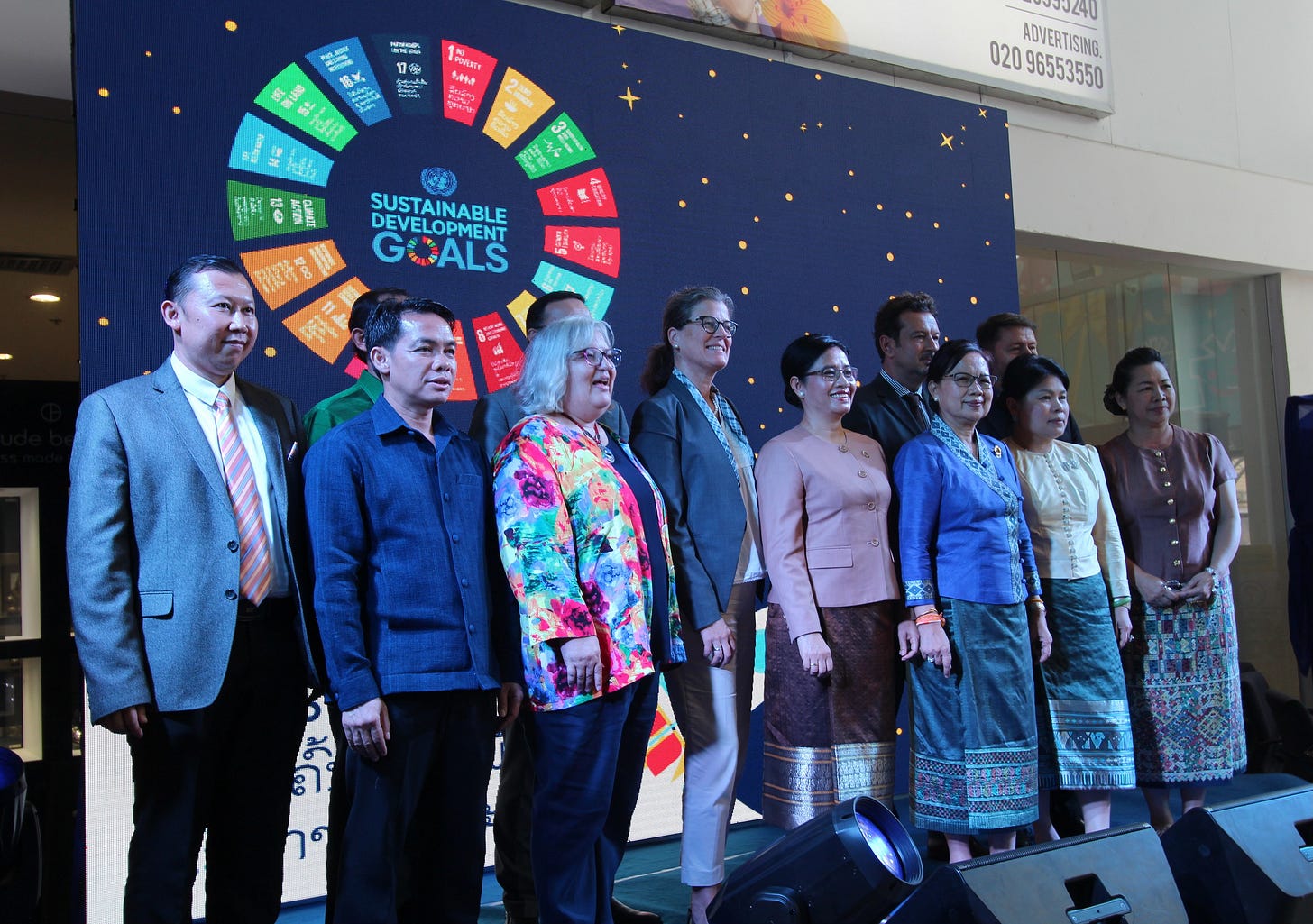I wrote this in 1997 for National Review. It’s not available anywhere on the Internet, so I’ve uploaded it here. —Claire

AN ENGINEER I met in Vientane told me that development workers always arrived in Laos with high hopes. After a year they would sink into a funk, but after another year, they would make their peace with the country. They would learn to play a terrific game of tennis.
I had come to Laos to work for the United Nations Development Program. Created between France’s defeat at Dien Bien Phu and Britain’s withdrawal east of the Suez, the UNDP is the world’s largest source of development grants, with a budget of more than a billion dollars and offices in 150 countries and territories. “Development,” the UNDP mission statement asserts, “is inseparable from the quest for peace and human security.” In recent years, with UN peacekeeping missions ending in repeated embarrassment, senior UN officials, including UNDP administrator James Gustave Speth, have proposed that development should be the UN’s primary goal.
The UNDP has been in the Lao Peoples’ Democratic Republic since 1976. On the face of it, Laos is the archetypal candidate for development assistance. The country has been ravaged by centuries of invasions, indifferent colonial rule, hapless proximity to the strategic theaters of the Vietnam War, and ruinous socialist experiments. Independence from France, in 1949, inaugurated more than two decades of coups and civil infighting. In 1975, following the collapse of Phnom Penh and Saigon, the Pathet Lao seized control of Vientiane. Under the Party’s administration, the economy has remained in shambles. One in five children dies in infancy. Adult life expectancy is barely more than fifty years. Less than half the population is literate. Outside the capital, there is virtually no electricity, no railroads, nor even roads; infrastructure is primitive, and crops are regularly wiped out by floods and pestilence. The countryside is littered with unexploded ordnance from the Vietnam War. Recently, the government has instituted a series of reforms to decentralize economic decision making, a perestroika without the glasnost, for the Party has no intention of relinquishing political control. The media are controlled by the government, all independent political organization is banned, and dissenters are imprisoned.
Keep reading with a 7-day free trial
Subscribe to The Cosmopolitan Globalist to keep reading this post and get 7 days of free access to the full post archives.




